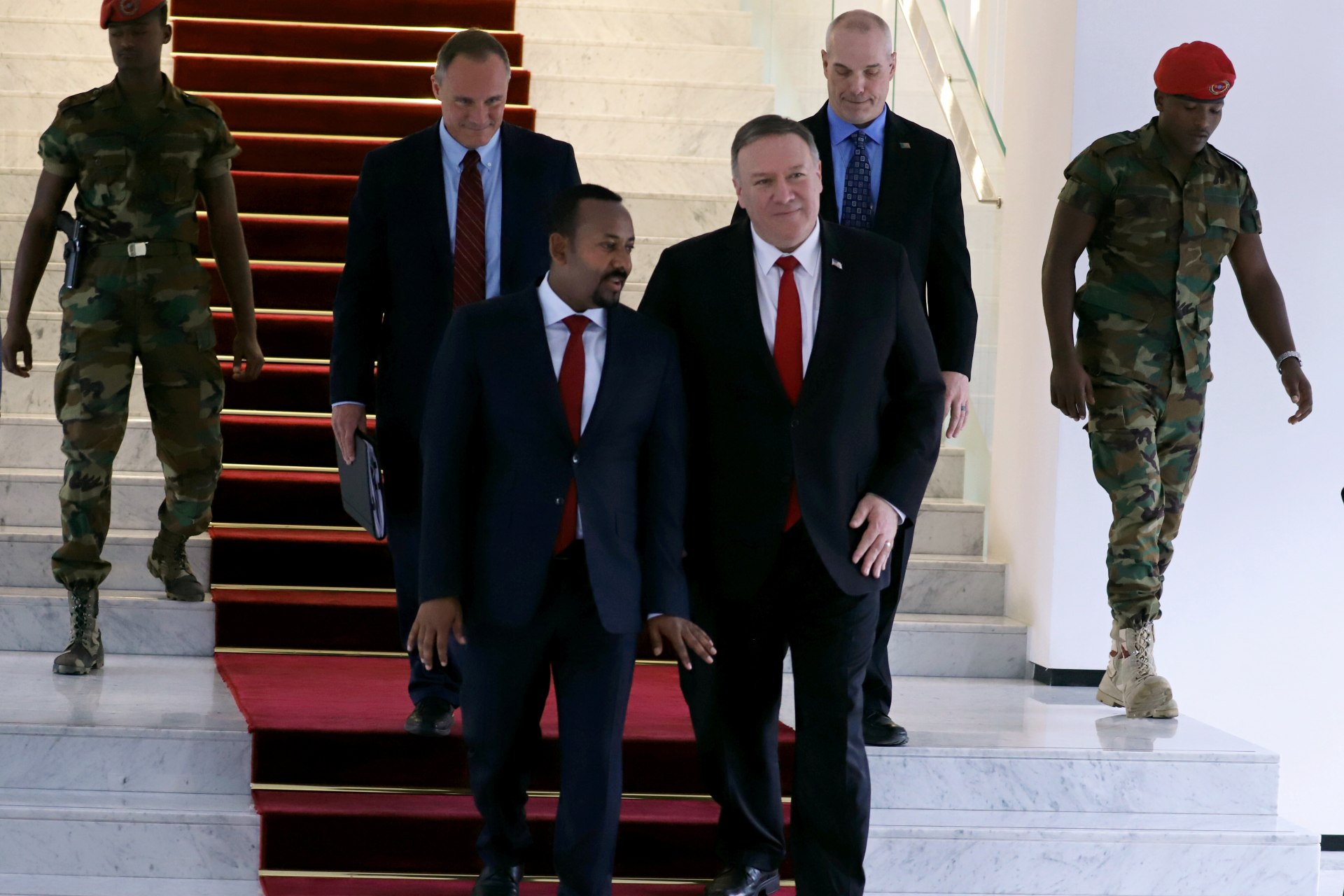Secretary of State Pompeo Completes Trip to Africa

By experts and staff
- Published
By
- John CampbellRalph Bunche Senior Fellow for Africa Policy Studies
Secretary of State Mike Pompeo recently completed his first trip in his current role to Africa. Over three days, he visited Dakar in Senegal, Luanda in Angola, and Addis Ababa in Ethiopia, where he also visited the head of the African Union. During the trip, Secretary Pompeo advocated for a stronger U.S.-Africa relationship amidst China’s growing role on the continent.
Though President Trump appears to have no interest in Africa beyond seemingly unfiltered insults, some in his administration have visited, thought not to the same extent as previous administrations. His wife Melania, his daughter Ivanka, Secretary of Commerce Wilbur Ross, and former Secretary of State Rex Tillerson have all visited the continent, though the latter was fired by Trump during his trip. Unlike past administrations, the Trump administration has no high profile, signature Africa policy initiative, such as President Bill Clinton’s Africa Growth and Opportunity Act (AGOA), President George W. Bush’s campaign against HIV/AID (the President’s Emergency Plan for Aids Relief, or PEPFAR), or President Barack Obama’s electric power initiative (Power Africa).
The Trump administration’s Africa strategy, Prosper Africa, envisages facilitating greater American private sector investment and trade with Africa. Its Development Finance Corporation has significant potential, building on and ultimately replacing the Overseas Private Investment Corporation, but it is underfunded and is only just now becoming operational. Prosper Africa’s roll-out rhetoric by then National Security Advisor John Bolton seemed more concerned with countering China’s political and security influence on the continent than on political, social, or economic development. Meanwhile the Trump administration’s new “travel ban,” suspending immigration to the United States from Eritrea, Nigeria, Sudan, and Tanzania because of alleged security shortcomings, is unlikely to encourage American private sector involvement with Africa.
But in general, American policy toward Africa—encouraging democracy and the rule of law, facilitating economic development, and supporting the development of African security initiatives and capabilities—remains consistent with that of previous administrations, driven below the cabinet level and from outside the White House. Assistant Secretary of State for Africa Tibor Nagy and USAID Administrator Mark Green get high marks for management, and Congress has blocked Trump administration efforts to eviscerate the various assistance programs from which Africa benefits.
Moreover, American soft power endures, going from strength to strength. China may have peppered the continent with Confucius Institutes designed to expand its influence through the study of Chinese language and culture, but the National Basketball Association’s (NBA) Africa league and the enduring power of Hollywood promote American mass culture to a much larger popular audience. Aubrey Hruby observes that the movie “Black Panther” and the NBA do more to build American influence than cabinet visits. And that is even leaving aside Oprah! It is always worth keeping in mind that the American relationship with Africa is much more than presidential administrations.